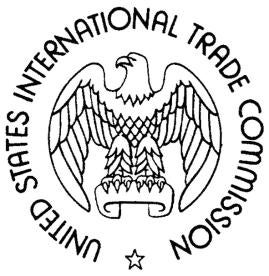Suniva, Inc. (Suniva), on April 26, filed a petition requesting a “global safeguard” action against foreign-manufactured crystalline silicon photovoltaic (CSPV) cells and modules.
Section 201 of the Trade Act of 1974 (Section 201) provides a mechanism for the President to take action, including import relief, to facilitate efforts by a domestic industry that has been seriously injured by imports to make a “positive adjustment” to import competition. Unlike the U.S. antidumping and countervailing duty laws, the Section 201 safeguard law (also known as the “escape clause”) does not require a finding of an unfair trade act and is not targeted against any one specific country. Instead, the Section 201 law requires the U.S. International Trade Commission (ITC) to determine whether an article is being imported into the United States in such increased quantities as to be a substantial cause of serious injury, or the threat thereof, to the domestic industry producing an article like or directly competitive with the imported article. A “substantial” cause is defined as a cause that is important and not less than any other cause.
The investigation is conducted entirely by the ITC. If the ITC makes an affirmative determination, the ITC then recommends actions for the President to take. Import actions are usually in the form of higher tariffs on imports of the product from all countries, quotas, or tariff-rate quotas. The President ultimately makes the determination of whether to take action, based on the ITC’s recommendations, but the President is not limited to the remedy proposed by the ITC. Importers are liable for any potential safeguard duties imposed. In addition, these investigations could impact purchasers by increasing prices and/or decreasing supply of the product at issue, in this case CSPV cells and modules.
Scope:
The scope of this petition covers crystalline silicon photovoltaic cells, and modules, laminates, and panels, consisting of crystalline silicon photovoltaic cells, whether or not partially or fully assembled into other products, including, but not limited to, modules, laminates, panels and building integrated materials.
This petition covers crystalline silicon photovoltaic cells of thickness equal to or greater than 20 micrometers, having a p/n junction formed by any means, whether or not the cell has undergone other processing, including, but not limited to, cleaning, etching, coating, and/or addition of materials (including, but not limited to, metallization and conductor patterns) to collect and forward the electricity that is generated by the cell.
Included in the scope of this petition are photovoltaic cells that contain crystalline silicon in addition to other photovoltaic materials. This includes, but is not limited to, passivated emitter rear contact (PERC) cells, heterojunction with intrinsic thin-layer (HIT) cells, and other so-called “hybrid” cells.
Merchandise under consideration may be described at the time of importation as parts for final finished products that are assembled after importation, including, but not limited to, modules, laminates, panels, building-integrated modules, building-integrated panels, or other finished goods kits. Such parts that otherwise meet the definition of merchandise under consideration are included in the scope of this petition.
Excluded from petition are thin film photovoltaic products produced from amorphous silicon (a-Si), cadmium telluride (CdTe), or copper indium gallium selenide (CIGS).
Also excluded from the scope of this petition are crystalline silicon photovoltaic cells, not exceeding 10,000mm2 in surface area, that are permanently integrated into a consumer good whose function is other than power generation and that consumes the electricity generated by the integrated crystalline silicon photovoltaic cell. Where more than one cell is permanently integrated into a consumer good, the surface area for purposes of this exclusion shall be the total combined surface area of all cells that are integrated into the consumer good.
For customs purposes, the CSPV cells covered by this petition are classified under Harmonized Tariff Schedule of the United States (HTSUS) subheading 8541.40.6030. CSPV cells that are assembled into modules or panels are classified under HTSUS subheading 8541.40.6020. CSPV panels with inverters or batteries attached can be classified under HTSUS subheadings 8501.61.00.00 and 8507.20.80, respectively. In addition, CSPV cells covered by this petition may also be imported under subheading 8501.31.8000.
The Industry:
The Section 201 statute requires the petition to provide certain information on the percentage of domestic product represented by the petitioners, but does not require a specific percentage threshold. Petitioner Suniva alleges that it represented 44.2 percent of the domestic production and 50.6 percent of domestic capacity of CSPV cells in 2016.
Allegations:
Petitioner Suniva states that the quantity of imports of CSPV cells and modules rose by 61.6 percent from 2012 to 2016, and the value of imports rose by 62.8 percent. Between 2015 and 2016 alone, the quantity of imports rose by 68 percent and the value of imports rose by 40 percent. The volume of imports continued to grow over the 2012-2016 period despite the imposition of antidumping and countervailing duty orders on imports of CSPV cells from China and Taiwan. These cases pushed production into new countries, resulting in increased global production and capacity.
Suniva argues that increasing imports have taken a large share of the market from U.S. producers and have led to bankruptcies, plant shutdowns, layoffs, and a server deterioration of the financial performance of the domestic industry. On April 17, 2017, Suniva filed for Chapter 11 bankruptcy. Petitioner alleges that there are any causes other than imports that have contributed importantly to serious injury.
Under the Section 201 law, safeguard import restrictions can be imposed on imports from NAFTA countries (i.e., Canada and Mexico) only if imports from the NAFTA countries individually: (1) account for a significant share of total imports; and (2) contribute importantly to the serious injury (or threat thereof) caused by imports. Petitioner Suniva argues that imports from both Canada and Mexico meet this test, and therefore import restraints under Section 201 should include imports from both Canada and Mexico.
Request for Relief:
Petitioner suggests four forms of relief: (1) a tariff and price floor on imports; (2) an equitable distribution of antidumping and countervailing duties collected and still under suspension of liquidation in connection with the antidumping and countervailing duty orders on CSPV cells from China and Taiwan; (3) creation of an economic investment development program funded with the tariffs collected under any resulting remedies under a safeguard action; and (4) bilateral and multilateral negotiations by the U.S. government to reduce global excess capacity and restore a supply and demand balance in the global market.
Estimated Schedule of Investigation:
The ITC normally must make its injury finding within 120 days of the filing of the petition. In this case, that would be August 24, 2017. The ITC must transmit its report to the President, together with any relief recommendations, within 180 days after receipt of the petition. In this case, that deadline would be October 23, 2017.





 i
i

